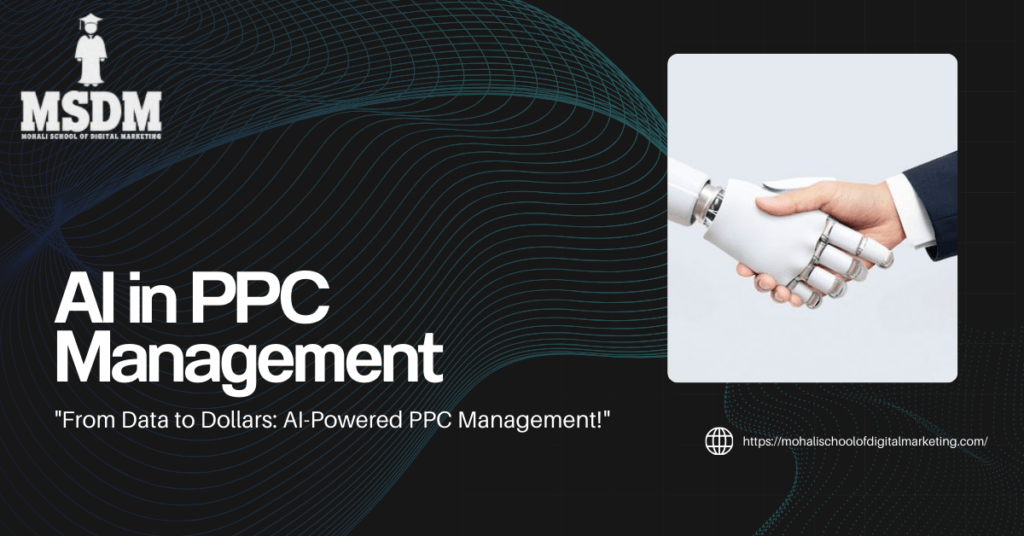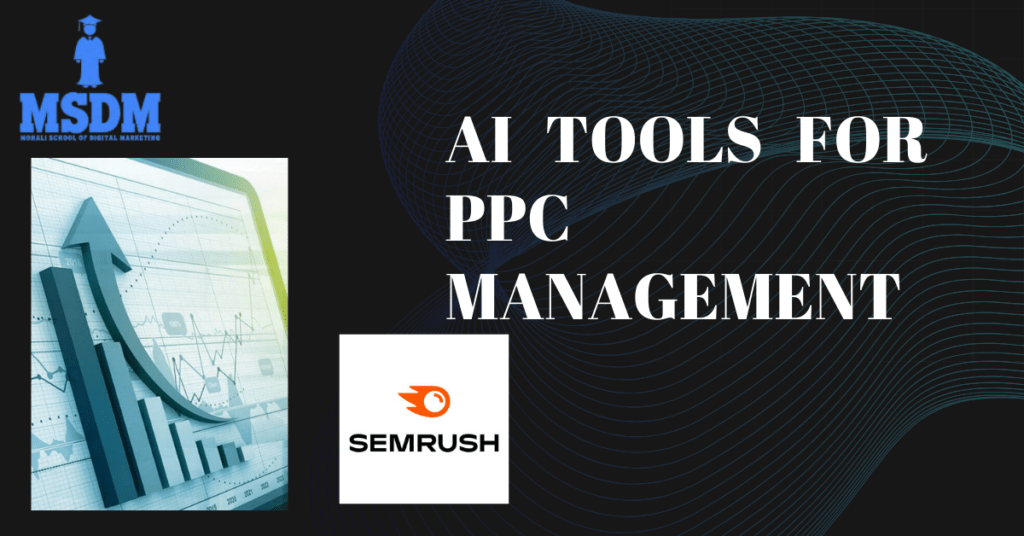INTRODUCTION
Are you looking to supercharge your online ads? If so, you’re in the right place! In the world of digital marketing, pay-per-click (PPC) advertising is a powerful way to drive traffic and sales. But did you know that artificial intelligence AI in PPC management?
In this blog, we’ll dive into how AI is making PPC smarter and more efficient. You’ll learn how AI helps you set better bids, find the right audience, and create ads that grab attention. Plus, we’ll share some amazing AI tools that can help you get the most out of your campaigns, along with real-life examples of businesses that have seen incredible results.
WHAT IS PPC MANAGEMENT?
PPC (Pay-Per-Click) management is the process of creating and overseeing online ads where businesses pay each time someone clicks on their ad. PPC management is all about using online ads effectively to attract customers while keeping costs under control.
Reporting: Regularly reviewing data to see what’s working and what isn’t.
Setting Up Campaigns: Creating ads and choosing keywords to target the right audience.
Keyword Research: Finding the best keywords that potential customers are searching for.
Creating Ads: Writing catchy ad copy and designing visuals that attract clicks.
Managing Bids: Deciding how much to pay for each click to stay competitive.
Tracking Performance: Monitoring how well the ads are doing by checking metrics like click-through rates and conversions.
Optimizing Ads: Making adjustments based on performance data to improve results.

HOW AI TRANSFORMS PPC CAMPAIGNS?
Automated Bidding: AI analyzes data in real time to adjust bids, ensuring you get the best value for your ad spend without manual intervention.
Ad Copy Optimization: AI generates and tests different versions of ad copy, helping to identify the most effective messages that resonate with your audience.
Audience Targeting: AI leverages user data and behavior patterns to pinpoint the right audience, ensuring your ads reach those most likely to convert.
AI TOOLS FOR PPC MANAGEMENT
Google Ads Smart Bidding: This tool uses machine learning to optimize bids for conversions or conversion values in real-time, helping you get the most out of your budget.
WordStream: WordStream’s platform offers AI-driven insights for managing PPC campaigns across multiple channels, helping you optimize ad performance and save time.
SEMrush: SEMrush provides AI-powered tools for keyword research, competitive analysis, and ad creation, allowing for smarter targeting and strategy development.

CASE STUDIES AND REAL SUCCESS STORIES
eBay
Challenge: eBay wanted to enhance its advertising performance and reduce costs.
Solution: By implementing Google Ads’ Smart Bidding, eBay leveraged AI to optimize bids for different products based on real-time data.
Results: eBay saw a significant increase in conversions while reducing cost-per-acquisition (CPA) by 20%, demonstrating the effectiveness of AI-driven bidding strategies.
Zalando
Challenge: The fashion retailer aimed to improve ad performance across multiple channels.
Solution: Zalando utilized WordStream to manage its PPC campaigns efficiently, employing AI insights to optimize keywords and ad copy.
Results: The retailer experienced a 30% increase in click-through rates (CTR) and a 25% boost in sales attributed to more targeted and relevant ads.
Hootsuite
Challenge: Hootsuite needed to enhance its social media ad campaigns and reduce manual efforts.
Solution: Using AdEspresso, Hootsuite automated its ad testing and optimization processes, allowing AI to identify the best-performing ad variations.
Results: The company achieved a 50% increase in conversion rates while saving time on campaign management, leading to more efficient ad spending.
CHALLENGES AND CONSIDERATION – AI IN PPC MANAGEMENT
Data Quality and Accuracy
AI relies heavily on data. If the data is inaccurate or outdated, it can lead to poor decision-making and ineffective campaigns. Ensuring high-quality, clean data is crucial for successful AI implementation.
Initial Setup Complexity
Setting up AI tools can be complex and may require a steep learning curve. Marketers need to invest time in understanding how to use these tools effectively and integrate them into existing systems.
Cost of Implementation
Some AI tools can be expensive, especially for small businesses. Weighing the potential ROI against the costs is essential before committing to an AI solution.
Understanding AI Insights
Interpreting AI-generated data and insights can be challenging. Marketers must develop the skills to understand and act on these insights to drive successful campaigns.
Competition
As more businesses adopt AI in their PPC strategies, competition can intensify. Staying ahead requires continuous learning and adaptation to new trends and technologies.
Privacy Concerns
With growing regulations around data privacy (like GDPR), using AI for targeted advertising can raise ethical and legal considerations. Marketers must ensure compliance while leveraging user data.
Customization Needs
Every business is unique, and one-size-fits-all AI solutions may not meet specific needs. Tailoring AI tools to fit particular campaign goals and audience preferences is important for effectiveness.
Performance Variability
AI-driven results can vary based on external factors like market conditions and consumer behavior. Continuous monitoring and adjustment are necessary to maintain optimal performance.
CONCLUSION
Incorporating AI into your PPC management can dramatically enhance your advertising efforts, making them smarter, more efficient, and more effective. With capabilities like automated bidding, precise audience targeting, and data-driven ad optimization, AI empowers businesses to achieve better results while saving time and resources. However, it’s essential to navigate the challenges and ensure you’re using AI tools effectively to maximize their potential.
If you’re ready to take your PPC campaigns to the next level, consider exploring the AI tools discussed in this post. Stay informed about the latest trends and best practices in AI-driven advertising, and don’t hesitate to experiment with different strategies to see what works best for your business.
